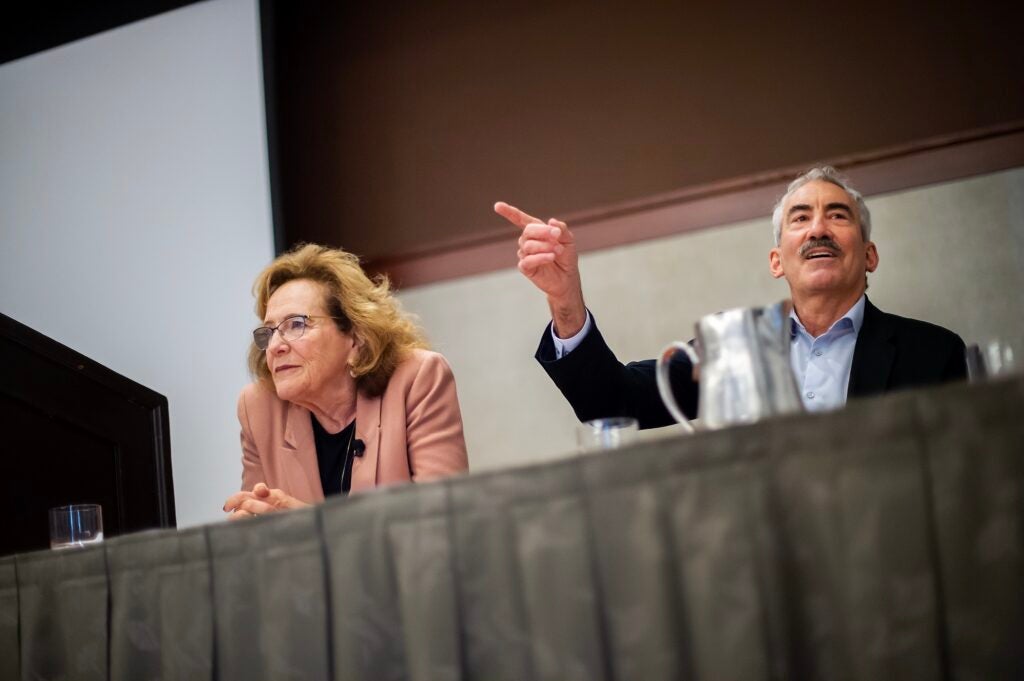CHIBE Check-In: A Q&A with Dr. George Loewenstein

CHIBE spoke with affiliate Dr. George Loewenstein about what he’s been working on recently, what impact he’s seen from his i-frame and s-frame paper that garnered a lot of attention (see our blog post here), and his thoughts on being the face of behavioral economics on Reddit.
It’s been around 2 years since you published your paper “The i-frame and the s-frame: How focusing on individual-level solutions has led behavioral public policy astray” with Nick Chater. Do you think, even anecdotally, that the paper has led some people in the behavioral economics field to pivot away from i-frame interventions? What do you see as the impact of that paper so far?
As your question hints at, it’s very difficult to assess whether a paper has had an impact. Certainly, there have been plenty of anecdotal situations in which researchers have told me that our paper influenced them in various ways, including in some cases changing the mix of research they do.
More generally, Nick and I have been incredibly pleasantly surprised by the general reception of our paper; many people have told us that we articulated thoughts/doubts about the currently dominant approach that they themselves had long harbored.
One thing I’ve noticed is that invitations to give policy-related talks have largely dried up (at my age a blessing, not even in disguise). When I used to do nudge research (I still do a bit), there was an inexhaustible demand for public talks touting the revolutionary potential of individualistic interventions; but who wants to hear that what we’ve (they’ve) been doing for years or decades may have been a distraction?
I am, however, occasionally asked to present, or debate, the i-frame/s-frame perspective, and in one talk, in Vienna, one member of the audience violently shook his head throughout my presentation (making it difficult for me to concentrate on delivering the talk), then approached me when it ended and told me that my presentation made him question the research he had been doing for decades, and made him more depressed than he had ever been in his life.
What projects or research are you working on right now?
Let’s see…Well, I’m writing two books, one with Nick Chater that’s an extension of the paper (covering a whole lot of new ground).
I’m doing research with a graduate student, Dan Connolly, on the sorting property of memory; research with Sami Horn on people’s general tendency to underestimate how quickly they will master new tasks, how quickly they will lose skills if they don’t use them (this one also with Dan Connolly), and showing that people choose practice tasks of the wrong difficulty level to maximize learning (this one also with Angela Duckworth and Victoria Liu).
I’m working with Jenny Chang on a project examining factors that drive a wedge between how sympathetic we are toward people and how bad we think their plight is; with Erin Carbone on the desire (drive) to share personal information; with Erin Carbone, Cass Sunstein, and Linda Dezso on the bi-directional relationship between shame and sharing of information; with Andras Molnar on the desire to feel understood (by at least one other person); with Zach Wojtowicz and with Edika Quispe-Torreblanca, John Gathergood, and Neil Stewart on diverse aspects of attention; with David Hagmann on a whole lot of projects related to crowding out issues and to persuasion; with Linda Thunstom and colleagues on people’s (dis)satisfaction with their own risk-taking; with Todd Cherry and his colleagues at University of Wyoming on a variety of projects relating to public policy; and with Ania Jaroszewicz and Roland Bénabou on a pair of papers addressing why people who need help fail to ask for it.
Huge apologies to my many collaborators left off this partial list.
Is there anyone else’s research in the behavioral economics world that you’re particularly excited about?
Just a few examples: I’m very excited about a lot of new research in economics addressing the role of narratives in judgment — e.g., Josh Schwartzstein’s work on “narrative persuasion.”
I recently heard a talk by Ned Augenblick on “Overinference from Weak Signals and Underinference from Strong Signals” that I thought was superb.
And I think David Laibson and colleagues’ deep dive on the impact of auto-enrollment and auto-escalation on retirement saving is really interesting and important.
And, everything Alex Imas touches turns to gold.
Are you aware that the subreddit for “behavioral economics,” which has 40K members, uses your face as the page’s avatar? How do you feel about being the face of the field, at least on that platform?
Thanks for drawing my attention to it! What a fun surprise! It’s great to see not only for egocentric reasons, but because the subreddit is packed with useful information and valuable insights. Much better than Twitter, which I got on years ago for less than 24 hours — long enough to realize that following various tweeters would ruin my life.